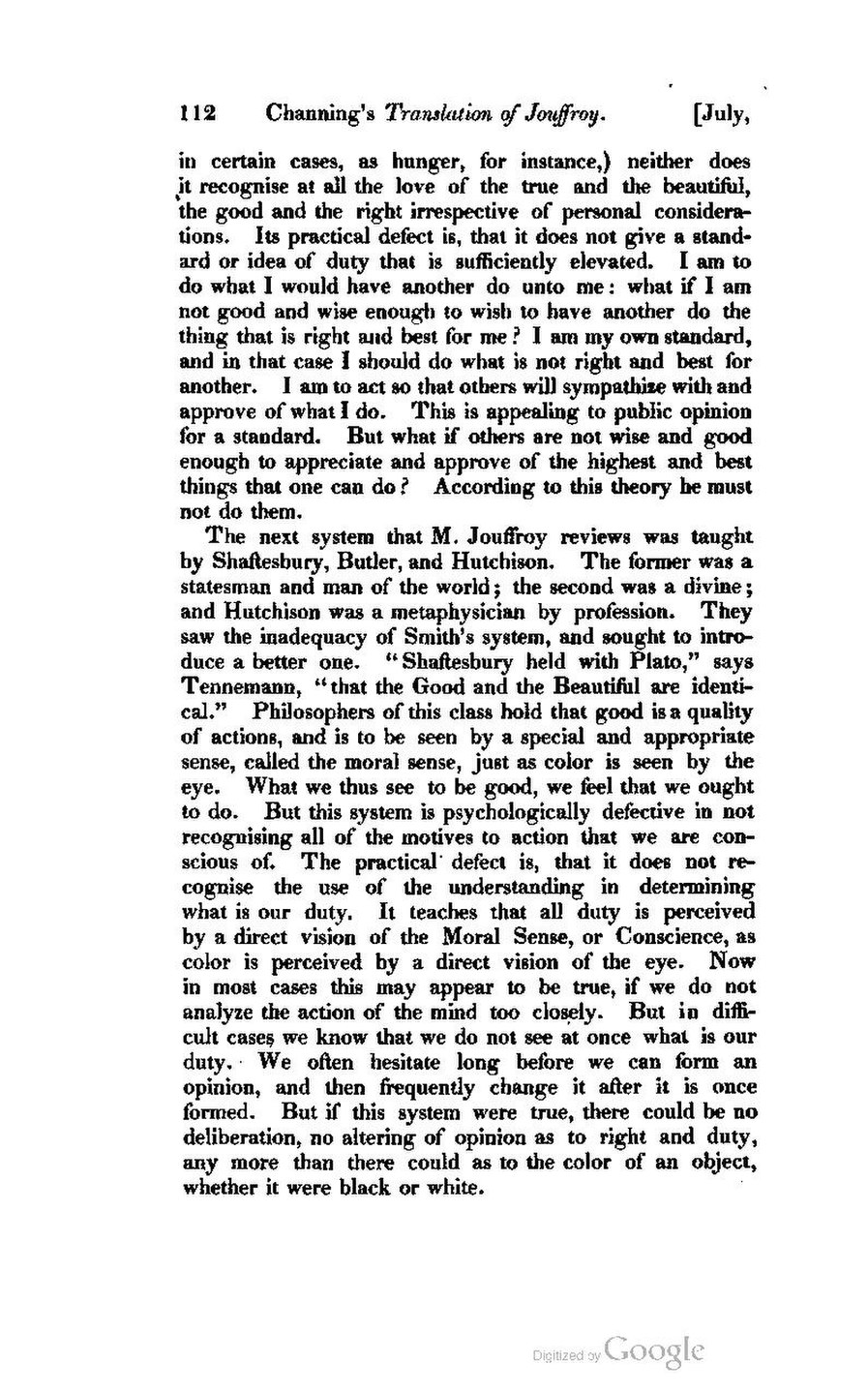in certain cases, as hunger, for instance,) neither does it recognise at all the love of the true and the beautiful, the good and the right irrespective of personal considerations. Its practical defect is, that it does not give a standard or idea of duty that is sufficiently elevated. I am to do what I would have another do unto me: what if I am not good and wise enough to wish to have another do the thing that is right and best for me I am my own standard, and in that case I should do what is not right and best for another. I am to act so that others will sympathize with and approve of what I do. This is appealing to public opinion for a standard. But what if others are not wise and good enough to appreciate and approve of the highest and best things that one can do? According to this theory he must not do them.
The next system that M. Jouffroy reviews was taught by Shaftesbury, Butler, and Hutchison. The former was a statesman and man of the world; the second was a divine; and Hutchison was a metaphysician by profession. They saw the inadequacy of Smith's system, and sought to introduce a better one. “Shaftesbury held with Plato,” says Tennemann, “that the Good and the Beautiful are identical.” Philosophers of this class hold that good is a quality of actions, and is to be seen by a special and appropriate sense, called the moral sense, just as color is seen by the eye. What we thus see to be good, we feel that we ought to do. But this system is psychologically defective in not recognising all of the motives to action that we are conscious of. The practical defect is, that it does not recognise the use of the understanding in determining what is our duty. It teaches that all duty is perceived by a direct vision of the Moral Sense, or Conscience, as color is perceived by a direct vision of the eye. Now in most cases this may appear to be true, if we do not analyze the action of the mind too closely. But in difficult cases we know that we do not see at once what is our duty. We often hesitate long before we can form an opinion, and then frequently change it after it is once formed. But if this system were true, there could be no deliberation, no altering of opinion as to right and duty, any more than there could as to the color of an object, whether it were black or white.
